Experts worry about low COVID-19 vaccination rates in kids as restrictions lift across Canada
Parental hesitancy and confusion keeping many kids from getting the shot
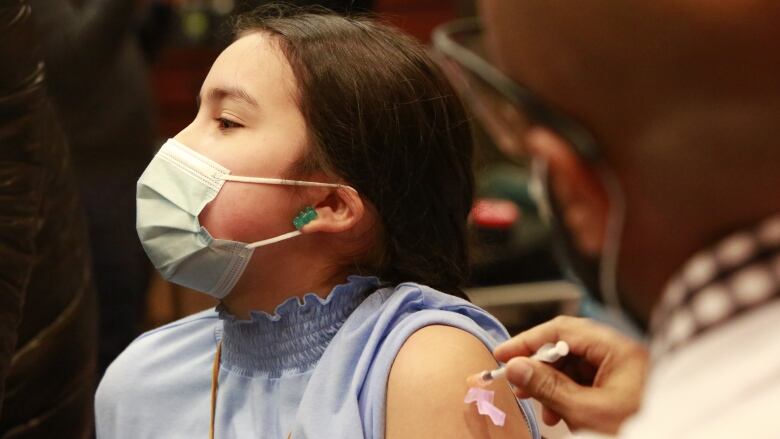
As public health restrictions to combat COVID-19 infections are lifted across Canada, the officials repealing them say they're concerned about lagging uptake of the vaccine by children under age 12.
It's concerning enough that B.C.'s provincial health officer, Dr. Bonnie Henry, told CBC News it was the subject of "a long conversation about that with colleagues across the country as well as some international experts."
The rolling repeals of mask mandates, capacity limits and phasing out of proof of vaccination comeas the most recent data from the Public Health Agency of Canada shows the percentage of five- to 11-year-olds to receive at least one dose of a COVID-19 vaccine sits below 50 per cent in Alberta, with four provinces reporting figures less than 60 per cent.
The Canadian average for kids ages five to 11 who have received at least one does is 56.5 per cent.
By comparison, the percentage of teens and adults to get at least one shot reaches into the high 80sand 90s across the country.
A complex disparity
Dr. Laura Sauv, a B.C. pediatric infectious disease specialist who also speaks for the Canadian Pediatric Society, says the data is concerning.
"We are not seeing as many five- to 11-year-olds vaccinated as I would like as a pediatrician,"Sauv said.
Digging deeper into the numbers reveals that in some provinces,anywhere from a third to more than half of children in that age range remain unvaccinated against COVID-19.
WATCH | What will improve COVID-19 vaccine rates in kids?
"Even though we have excellent evidence that the vaccine is safe and effective, I know that families are reading scary things,"Sauvsaid, referring to early anecdotal and now disproven claims about safety and efficacy of giving the vaccine to children.
But Sauvacknowledges the full explanation for the disparity in vaccination rates is more complex.
Alison Bentley's nine-year-old son, Quinn, is in the 45 per cent of children ages five to 11 in B.C. who've not had a shot.
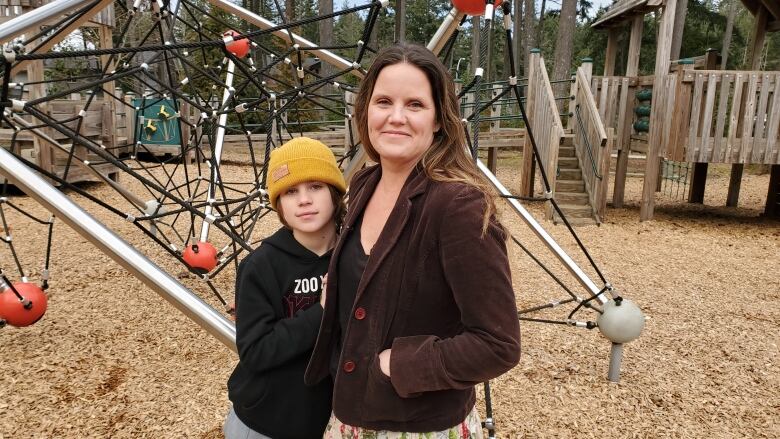
Bentley says she had concerns after her 14-year-old daughter was vaccinated and experienced what she calls "menstrual upset."
The results of a U.S. studypublished in January examined nearly 4,000 women and found a small change in menstrual cycle length on average one day but concludedno effect on menses length.But Bentley says she couldn't get a satisfying answer from the health-care providers she spoke with.
"So it was enough to give us a bit of pause when thinking of vaccinating our younger child," Bentley said, adding that in the meantime she and her children contracted COVID-19 and had only mild symptoms.
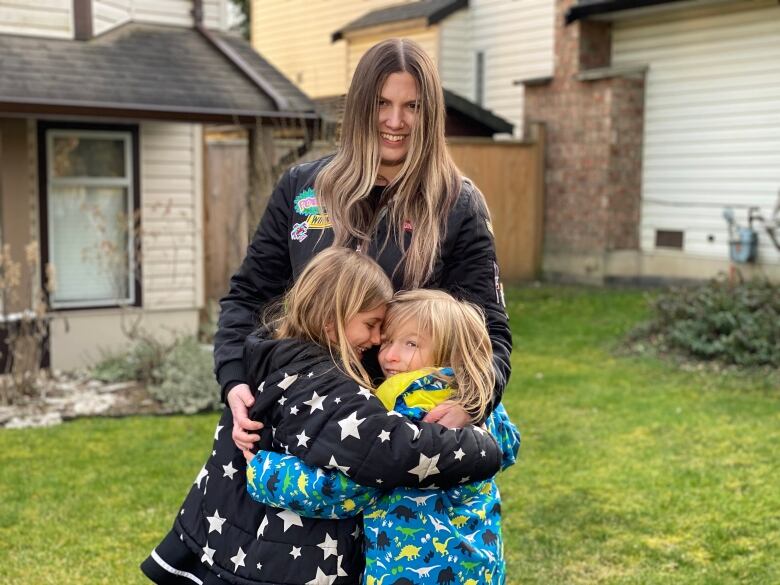
Stephany Garber Black says her two children aren't fully vaccinated, but not because she's hesitant.The Surrey, B.C., mom says it's just been difficult to get and keep appointments for their second shots because of availability, and illness in her family.
"I think a lot of families are going through what we are going through, where they're having difficulty getting appointments,"GarberBlack said.
COVID-19 complications can be serious
Pediatricians say that while the risk of fatal COVID-19 infections in children is much lower than it is for adults, it's not zero.And while relatively rare, complications from COVID-19 such as multi-system inflammatory syndrome (MIS-C) in children are serious, and cases are being admitted to hospitals in B.C. and other provinces.
Devon Greyson, an assistant professor in the School of Population and Public Health at the University of British Columbia in Vancouver, says 90 per cent vaccine uptake in all age groups should be the goal.
"I don't think we need to panic about this yet,"Greyson said, adding that it doesn't communicate a great deal of urgency to the public when the vaccine isn't easy to get.
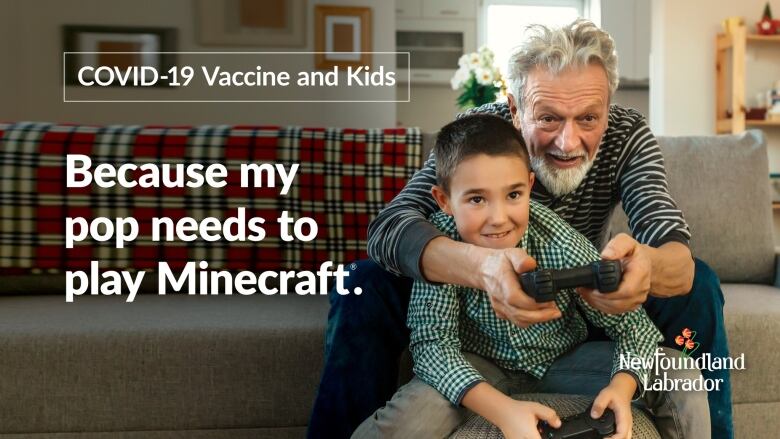
That seems borne out in Newfoundland and Labrador, where more than 85 per cent of children ages five to 12 have had at least one dose.
Dr. Natalie Bridger, a pediatric infectious diseases specialist at Eastern Health in St. John's, credits a strategy when the vaccine was approved a media campaign emphasizing the benefits to extended, older family members of immunizing children. Clinics were also set up in schools.
"Whoever was in charge of that public relations campaign really had their finger on the pulse of what drives behaviourin our province,"Bridger said.
Availability not an issue
In B.C. however, less than 25per cent of children ages five to 12 have been fully vaccinated with two doses, and only 55per cent have had at least one dose.
The province hasn't emphasized pediatric vaccination as a means to protect older relatives.Instead, the campaign includes a comic book bear who gets a vaccine and dons a superhero cape.
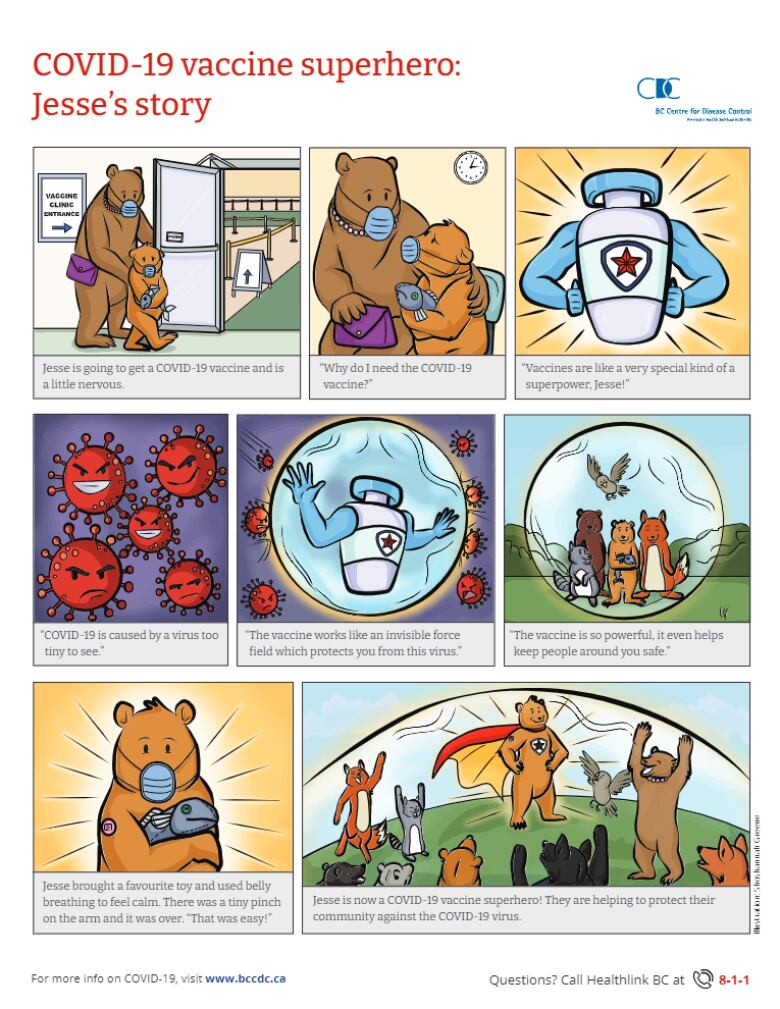
A spokesperson for the province says availability of the vaccine isn't an issue.
Henry suggests the strategy of using individual bookings and allowing for one-on-one visits for potentially needle-shy children and anxious parentsis unlikely to change.
While Henry acknowledges the rate needs to come up, she says polling before the pediatric vaccine was approved showed upwards of 30 per cent of parents intended to hesitate until they had more information.













_(720p).jpg)


 OFFICIAL HD MUSIC VIDEO.jpg)
.jpg)



























































































